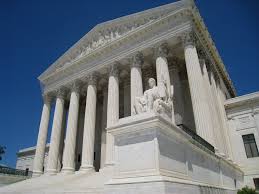US Supreme Court weighs Idaho's strict abortion ban in medical emergencies
Idaho is one of seven states to put in place in the past two years a near-total abortion ban with no exception to protect the health of pregnant patients, according to a U.S. Justice Department filing. At the same time, EMTALA requires hospitals that receive funding under the federal Medicare program to "stabilize" patients with emergency medical conditions.

- Country:
- United States
The U.S. Supreme Court on Wednesday waded back into the battle over abortion access during arguments in a case pitting Idaho's strict Republican-backed abortion ban against a federal law that ensures that patients can receive emergency care. The justices are hearing an appeal by Idaho officials of a lower court's ruling that found that the 1986 U.S. law at issue, the Emergency Medical Treatment and Labor Act (EMTALA), supersedes the state's near-total ban in the relatively rare circumstances when the two conflict.
President Joe Biden's administration, which sued Idaho over the abortion law, has urged the justices to uphold that ruling. The arguments were ongoing.
The case has led the Supreme Court, with its 6-3 conservative majority, to revisit the fraught legal landscape it created with its June 2022 decision overturning the 1973 Roe v. Wade ruling that had legalized abortion nationwide. Hundreds of demonstrators gathered outside the court building ahead of the arguments, mostly abortion rights advocates but some abortion opponents as well. Anti-abortion protesters chanted "Pro-choice is a lie, babies never choose to die." In response, abortion rights protesters yelled, "Pro-life is a lie, they don't care if people die."
Idaho's so-called abortion "trigger" law adopted in 2020 automatically took effect upon Roe's reversal. The state law bans nearly all abortions unless needed to prevent a mother's death, threatening doctors who violate it with two to five years in prison and loss of their medical license. Idaho is one of seven states to put in place in the past two years a near-total abortion ban with no exception to protect the health of pregnant patients, according to a U.S. Justice Department filing.
At the same time, EMTALA requires hospitals that receive funding under the federal Medicare program to "stabilize" patients with emergency medical conditions. Hospitals that violate EMTALA can face lawsuits by injured patients, civil fines and potentially the loss of Medicare funding. At issue in the case is whether Idaho's ban must yield to EMTALA when a doctor determines that the necessary "stabilizing care" is an abortion that would not meet Idaho's narrow exception for preventing the mother's death.
Joshua Turner, a lawyer for Idaho, in a filing argued that Idaho's ban does not conflict with federal law because EMTALA does not require doctors to offer specific procedures such as abortion. Turner also argued that Congress enacted EMTALA to prevents hospitals from refusing to treat uninsured patients, so Idaho's abortion ban does not thwart the aim of lawmakers. Following Roe's demise, the Biden administration issued federal guidance stating that EMTALA takes precedence over state abortion bans when the two conflict, and filed a lawsuit challenging Idaho's ban.
Elizabeth Prelogar, the U.S. solicitor general who argued on behalf of the administration, said in a filing that the termination of a pregnancy is the only care that would prevent grave harm to the health of some pregnant women facing emergency complications. "In those circumstances, EMTALA requires participating hospitals to offer such care - yet Idaho law forbids it," Prelogar wrote. "EMTALA accordingly preempts state laws like (Idaho's abortion ban) to the extent they prohibit the essential medical care required by federal law."
Boise-based U.S. District Judge B. Lynn Winmill in 2022 blocked enforcement of Idaho's law in cases of abortions that are needed to avoid putting the woman's health in "serious jeopardy" or risking "serious impairment to bodily functions." Medical experts have said conditions that could threaten the woman's life and health - from gestational hypertension to excessive bleeding - could require an abortion to stabilize her or avoid seizures, vital organ damage and failure, or the loss of the uterus.
The Supreme Court in January let Idaho enforce its law while also agreeing to decide its legality. The Supreme Court's ruling is expected by the end of June.
It is not the only abortion case the justices are due to decide during this presidential election year. The court is expected to rule by the end of June in a challenge by anti-abortion groups and doctors seeking to limit access to the abortion pill mifepristone, a drug approved by federal regulators in 2000.
(This story has not been edited by Devdiscourse staff and is auto-generated from a syndicated feed.)










